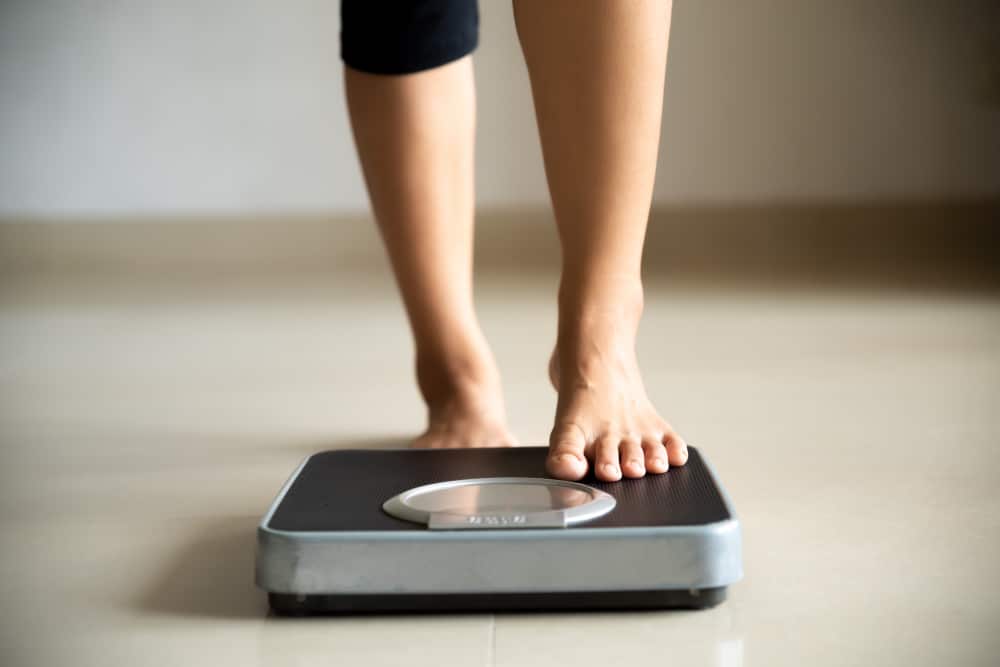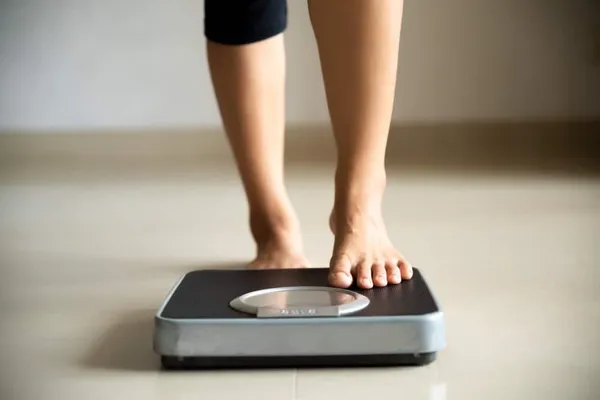Weight loss surgery. Whoa, right? It’s a massive deal, life-altering even, for your partner and you. Especially when you're a stay-at-home dad (SAHD), like me, you’re right there, in the thick of it. Forget some new diet fad; this is a whole new life, and you’re part of the construction crew. It’s scary when you think about all the changes, right?

But trust me, with the right understanding and support – a little humor doesn't hurt either – you can not only get through this but actually strengthen your relationship. I'm going to walk you through the bumps in the road, the emotional rollercoaster, the household chaos, and most importantly, give you some real-world tips to help your spouse and yourself make it. Everything I wish I'd known going in, basically.
As your spouse progresses on their weight loss journey, they may start considering the next steps. Many people find that after achieving significant weight loss, they're left with excess skin and tissue. Understanding the options for post weight loss body contouring can be an important part of the recovery process, improving body image and overall well-being. This is a decision that you as a partner can assist with, whether it be assistance during medical appointments or just general help with research and moral support.
Understanding Weight Loss Surgery & the New Reality
Okay, so what is weight loss surgery, anyway? Bariatric surgery, or weight loss surgery as you hear it said, comes in a few different forms. You’ve got gastric bypass, gastric sleeve… and honestly, a few others I couldn’t even pronounce. The basic idea? Limit how much grub someone can actually eat and how many nutrients their body absorbs. Smaller stomach, altered digestion. (Archbold) Sounds kinda straightforward, but the recovery? It’s a wild ride, folks. There's pain, there's healing, and hello, a complete lifestyle overhaul is needed.
And the diet? Forget about it. We're talking liquids, purees, then slooooowly adding solids back in. Could take weeks, even months, to get back to something resembling “normal,” and even then, it’s a whole new normal. (Ramsay Health) Tiny portions, special food combos, and a boatload of vitamins and supplements. Now, picture this: juggling that with the kids' love of chicken nuggets, your own pizza cravings… not so easy, is it? (Obesity Action Coalition) It’s a challenge, yup. It's an entire family affair; all hands on deck, especially if you have young’uns.
From the SAHD command center, this changes EVERYTHING. You’re not just dealing with a spouse who's recovering; you’re managing the entire family dynamic, the meals, all the feelings… and let’s be real, probably your own stress levels are going through the roof. It’s a lot to juggle, and it can easily overwhelm you. Remember though: This is a marathon, not a sprint.
Rejiggering the Household… SAHD Style
Alright, let’s get practical. How do you actually do this? Prep work? Crucial.
Pre-Surgery Prep: Before the surgery even happens, have a real heart-to-heart with your spouse. Talk about the coming changes. Stock up on the approved foods, liquids, all of it. Think broth, protein shakes (so many protein shakes!), sugar-free Jell-O… you know the drill. Clear out the junk food. I mean, really clear it out. It’s like the first big act of emotional support, right? Figure out the childcare sitch. Are the kids going to Grandma's for a few days? Need to arrange help? Tweak your daily routines. Get ready to be the primary caregiver for a bit. It’s mission control time, really.
Post-Surgery Chaos… Er, Adjustments: After surgery? It’s game on. You're now solo, or close to it, on household chores. Laundry piles up fast, trust me. Break it down into smaller chunks. One load a day. Don’t try to be some kind of superhero. Childcare while taking care of your recovering spouse? Balancing act of the century. Involve the kids! Even if it’s just setting the table or folding socks. Turn them into little helpers, part of the team. Because… you can’t do it all. And meal prep? Well, prepare to become a short-order cook. Tiny, bland meals for the spouse while the kids are begging for mac and cheese… Find healthy middle ground. Maybe everyone eats a slightly modified version of the “special” diet? It’s not forever, I promise. Yes, the mental and physical load will be heavy. Stay organized. Calendar, to-do list, whatever floats your boat. And seriously, ask for help from friends, family. Swallow your pride and just do it.
Adapting, adjusting, one day at a time. That’s the name of the game.
Emotional Backup: It’s More Than Just Soup
Weight loss surgery isn’t just physical; it’s crazy emotional. Mood swings, frustration, self-doubt… all par for the course. And navigating these emotional highs and lows? Critical. The body image stuff is huge, especially for your spouse's confidence, intimacy, and well-being. They’re going to look in the mirror, see something different… and not always in a good way, especially at first. Patience, my friend. Lots of patience. Reassurance. Tell them they’re beautiful, inside and out. And really mean it. This is where you start seeing each other's strengths, you know?
Encourage patience, realistic expectations. Weight loss surgery? Not a magic wand. It’s a tool, and it takes effort, time for it to work. Plateaus will happen. Setbacks too. (ACGME) Remind them of the big picture, and celebrate even the smallest wins. Just being there, listening without judgment? HUGE. Can't stress that enough. Sometimes, your spouse just needs to vent. Doesn’t need you to fix things, just listen. Put down your phone, make eye contact, just… be there.
I remember last fall, Sarah, my wife, was maybe two or three weeks post-op. I mean, she was just done. Exhausted, hating the limited food, the constant blah-ness of everything… just down. We were on the couch, Grey's Anatomy was on, and out of nowhere, she just started crying, said she regretted the whole thing. I just held her, listened, reminded her why she’d done it – to get healthier, be more active with the kids, you know? It was a rough night, but I think it brought us closer, actually. She got back on track.
You have to be their rock, their cheerleader, and their shoulder to cry on, sometimes all at the same time.
Navigating the Family and Friend Gauntlet
It’s not just you and your spouse on this journey, either. You’ve got family, friends, even random strangers weighing in, usually with unsolicited advice. It falls to you to help your spouse handle all that.
Dealing with the Unsolicited Advice Brigade: People will have opinions. Strong ones. About weight loss surgery. Some supportive, some… not so much. Help your spouse come up with a polite, firm response to these gems. Something like, "Thanks for your concern, but we're following the doctor's recommendations." Peer pressure at parties? Another lovely challenge. Be prepared to be the heavy. If you’re at a cookout and someone’s pushing cake on your spouse, step in. "Thanks, but she can’t eat that right now." It’s your job to protect them from those situations.
Talking to the Kids: Talking to the kids about why mom/dad is eating weird stuff or feeling tired is key. Honesty, but age-appropriate. "Mommy had surgery to help her get healthier. She needs to eat small meals and rest a lot right now.” Involve them! Let them help prep food or pick out healthy snacks. (My kids, Ben (7) and Lily (5), actually got into cutting up veggies!).
Sticking to the kids' routines during all this? Ugh. Kids thrive on routine, and surgery recovery… it throws a wrench in it. Try to keep regular mealtimes, bedtimes, activities going as much as you can, even if you have to shift them a bit. Marital and parenting roles shift big time during recovery. You’re going to be doing more of the parenting for a while. Make sure you and your spouse are on the same page. Open communication is important. Just remember: It’s not forever.
Make sure there’s room for connection, not just doctor’s appointments and caretaking. Plan a date night, even if it’s just watching a movie at home. Find time to talk, laugh, reconnect. Don’t let the whole thing drown your relationship.
You Matter Too: Self-Care for SAHDs
You can’t pour from an empty cup, as the saying goes, right? Being a full-time caretaker AND keeping yourself sane? Real challenge. How to stay energized while juggling all this? Sleep. Healthy food. Exercise. I know, easier said than done. But even little stuff can help.
Avoiding caregiver burnout: It’s okay to ask for help from family, friends. Don’t feel guilty about needing a break. Ask someone to watch the kids for a couple of hours so you can go for a walk, take a bath, or just… breathe. Huge for your marriage and for you. A support network is essential. Talk to other spouses of bariatric patients, find a therapist, join an online group. Talking to someone who “gets it” is incredibly helpful. There are actually forums and groups specifically for spouses of bariatric patients. Find one.
I got so caught up in taking care of Sarah and the kids after her surgery that I… kind of forgot about myself. I was wiped out, stressed, cranky all the time. One morning, I realized I was close to completely burning out. Started going for a run before the kids woke up. 30 minutes, that’s all. It made a difference. Gave me the energy, the headspace, to get through the day. You have to take care of yourself, too.
Conclusion: What I Learned & Advice
This is a marathon, not a sprint. It’s going to be tough, but trust me, it’s incredibly rewarding, too. You’re going to see your spouse change, inside and out. And you’re going to grow as a couple, as a family. The keys? Understanding, patience, communication… and remembering to take care of yourself.
If you're a SAHD going through this, you’ve got this. You’re stronger than you think. Ask for help! Don’t forget about yourself. A final, serious thank you: I know it takes so much strength for both of you to get through all this. You’re both amazing. And remember you aren’t alone.
Now, tell me your story. What challenges did you face? Any tips? Need support? I'm here. We’re all in this together. SAHDs, you’re often key to making all this work, and you deserve a boatload of credit for everything you do for your spouse!








